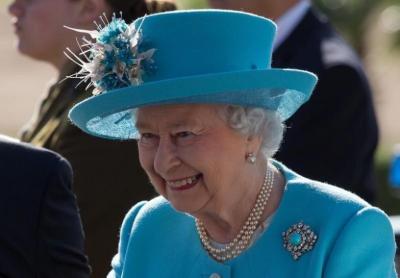Queen Elizabeth and transcendence

Perhaps the greatest danger in our time is due to the loss of the sense of God’s transcendence from the hearts of national leaders and the worldview and values of the nations over which they rule.
In my book, Who Will Rule the Coming ‘Gods’? — The looming spiritual crisis of artificial intelligence, I have explored the threatening implications of this trend as we move deeper into the cyber age and the rapid development of artificial intelligence.
However, the death of Queen Elizabeth II puts the focus on the importance of national leaders understanding and committing themselves to God’s transcendent majesty and the humility and accountability that goes with it.
Leaders resemble what they worship. If it is themselves or even the nations or organizations they dominate, the people will suffer, and the wider world will be endangered.
Think about the people of Germany in the era when Hitler was becoming the “transcendent” figure for a new world kingdom ruled over by him and his henchmen. Think dictatorships today where there is much pomp, but all of it on a horizontal scale.
One is reminded of Daniel’s prophecy that the day would come when a ruler would arise who will “magnify himself “above all his predecessors, do as he pleases no matter the outcomes, and worship and honor “a god of fortresses” (Daniel 11:1-39).
The type has manifested all across history.
I lived in Nuremberg just 20 years after the Second World War and could see the ruins of the mighty edifices that would be the temples of the Third Reich, and the podium where the Nazi dictator would present himself for the crowds to worship.
Now, on the positive side, Elizabeth II underscores the importance of the recognition of God’s transcendence.
In fact, both Queen Victoria and Elizabeth reveal how a healthy theology of God’s transcendence equips a leader to best serve his or her people.
It was Queen Victoria, Elizabeth’s great-great grandmother who most eloquently expressed the importance of leaders seeing God as transcendent and sowed the idea into her family heritage. Victoria once told a preacher that she wished Christ would come in her lifetime. “Why?” asked the minister. “Because I should like to lay my crown at His feet, she replied.”
Victoria lived and reigned long enough to recognize to Whom she should bow her own knees to, as people bowed to her. That spiritual heritage formed Elizabeth and the best of her reign.
Decades later, Elizabeth would declare her own testimony: “For me, the teachings of Christ and my own personal accountability before God provide a framework in which I try to lead my life. I, like so many of you, have drawn great comfort in difficult times from Christ’s words and example.”
In her 2014 Christmas message, Elizabeth declared: “For me, the life of Jesus Christ, the Prince of Peace, whose birth we celebrate today, is an inspiration and an anchor in my life. A role model of reconciliation and forgiveness, He stretched out His hands in love, acceptance, and healing. Christ's example has taught me to seek to respect and value all people of whatever faith or none.” This belief and practice, along with reliance on “Christ’s words and example” gave her “great comfort” in times of crisis.
Further, the sense of personal accountability to God “provides a framework in which I try to live my life.” Perhaps the understanding of transcendence modeled by Christ was the secret that made Queen Elizabeth the unique person and leader she was
Elizabeth shows that whatever a leader regards as transcendent determines the style, fruits, and outcomes of his or her period of leadership.
There is also much ceremony in secular cultures and their leaders. The contrast between that and the transcendent view is striking. In the strictly secular society, the only transcendence is in the “supreme leader” or whatever the powerholder is called, usually coupled with parades of the regime’s massive weaponry.
In a culture without a sense of true transcendence, the ceremony is horizontal, glorifying the human, while in a society with a view of God’s transcendent majesty and the sense of accountability that it nurtures, the celebration and ceremony are ultimately vertical, pointing to the Lord as the only transcendent being. It stresses the fact that the human leader is not the “most high” and is therefore answerable to God Himself for the way he or she handles the power entrusted to them.
Elizabeth understood that transcendence means a person — whether a peasant or a potentate — would have to stand in judgment and give an accounting to the Lord of all of the ways they used the gifts and very life given to them. Cardinal Vincent Nichols said that Elizabeth’s sense of accountability “underpinned her whole life.”
Thus, she understood that God is transcendent over every human, including those who sit on the thrones of great nations. And where there is that sense of God’s transcendence nations are blessed because the leaders know their own limits.
Hopefully, the sense of God’s transcendence that perhaps entered the family heritage through Queen Victoria and was sustained by Elizabeth will impact King Charles III and all the rest of the royals, not just in the U.K., but globally.
If it does, the nations will be blessed.
Wallace B. Henley is a former pastor, daily newspaper editor, White House and Congressional aide. He served 18 years as a teaching pastor at Houston's Second Baptist Church. Henley is author or co-author of more than 25 books, including God and Churchill, co-authored with Sir Winston Churchill's great grandson, Jonathan Sandys. Henley's latest book is Who will rule the coming 'gods'? The looming spiritual crisis of artificial intelligence.





















